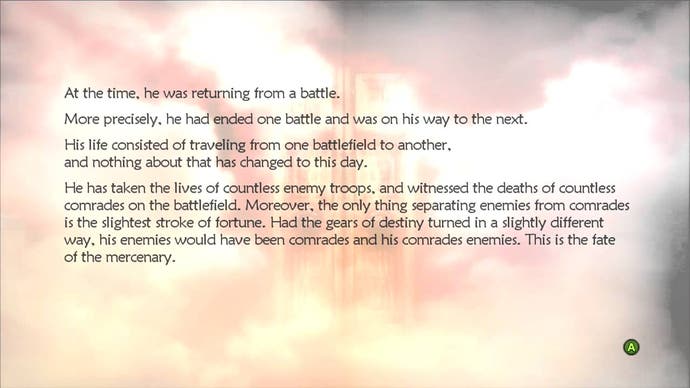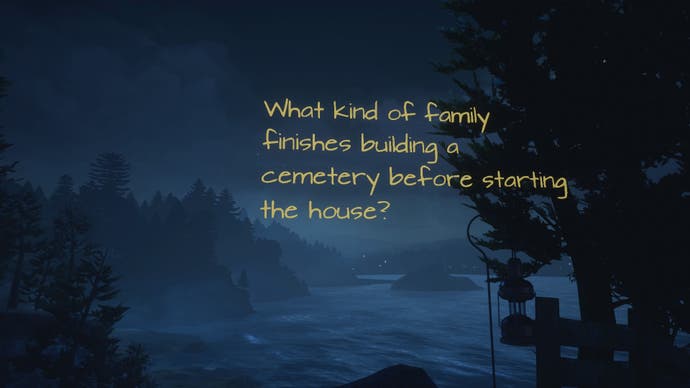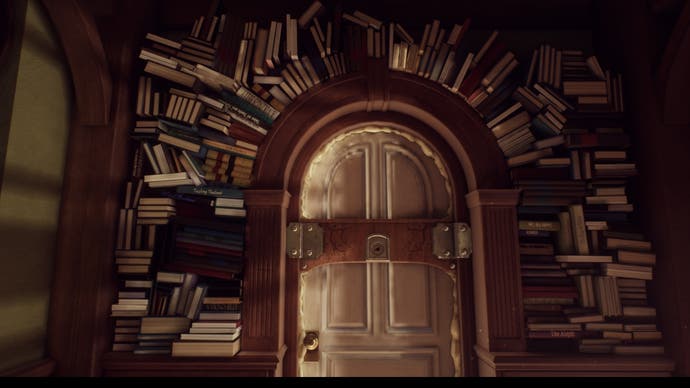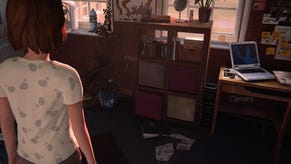The power of text in games
True to type.
In the late 90's, I was a primary school student. I remember reading a book while the teacher called out names for the daily register. She called out my name and I didn't hear her, but when she finally managed to grab my attention, she wasn't angry. She actually seemed pleased. 'I wish I could get that absorbed in a book', she said.
Around the same time period, one of the most famous games in history was released - Final Fantasy 7. I was similarly absorbed by the long conversations between the characters, interactions that relied on text with no voice acting. (Tellingly, some have argued that the Final Fantasy series contains literary elements.) I recently rewatched a vital scene from 7 and noticed how Cloud's dialogue suddenly overlaps Sephiroth's ranting to convey a furious interruption, and how at another point Cloud's words stay locked within a single text box, slowly moving up to give way to the next sentence rather than appearing in separate boxes. It's strangely fitting for the emotional nature of the scene - the words feel agonised.
The more games I play, the more I come across developers using text in engaging, interesting ways. In some cases, as in the scene above, the key is the placement of text, something that What Remains of Edith Finch handles with particular skill. In Finch, the character you control narrates her feelings and thoughts to you in both voice and text form. The text, however, is treated in a playful fashion, appearing on objects and in areas that tend to be directly relevant to the words and the emotional associations in the scene. At one point your character's lines appear over a gate before you: 'I hadn't been back since my brother Lewis' funeral'. As you open the gate, the text shatters and lies at your feet, echoing the sensation of loss in its disarray. In another scene, you look at the front of your fridge and see a typical family picture pinned there with colourful magnets. Underneath the picture, text reveals itself: 'But instead of a family, there were just memories of one'. After a moment it vanishes and leaves you with those memories.
So far I have touched on developers using placement of text as a creative technique in their work. But what about the use of straightforward prose in itself?

I recently played some of Lost Odyssey for the first time - it holds up well for an older game, but what actually ended up being the most striking aspect to me was its use of text. Every now and then you encounter actual short stories that refer to the background of the character you play. The prose (by Kiyoshi Shigematsu and translated into English by Jay Rubin) is some of the best that I've come across in the video game medium. While reading a lot of text while playing can sometimes feel dull - a lot of codex entries in RPGs fit this description for me - Lost Odyssey actually turns text into something that feels truly engaging, with pieces that are character-driven and deal with love and death. The protagonist is incredibly introverted during the normal gameplay, and so the prose pieces are used to open him up to the player by letting us indulge in his memories.
With that said, my favourite developer at the moment, in terms of prose and text-focused games, is Inkle. They created the well-known and wonderfully executed 80 Days (based, of course, on the Jules Verne book), and have recently released their new game, Pendragon. Much as with Lost Odyssey, the prose in 80 Days is lovely - carefully descriptive and graceful. Jon Ingold, the narrative director on the team, seems to cherish the artistry of text.
"For me as a writer," he says, "I love the versatility and subtlety of words. A line of dialogue can express so much: not just content ('We need to open the door.'), but also emotion, context, a relationship, ('I'm relying on you. Open that door, and hurry.')"
Dialogue in games (and stories in general) is something that is particularly engaging, and a great deal of work goes into crafting authentic language. Ingold elaborates on his approach: "In our new game, Pendragon, there isn't a single line of dialogue in the game that isn't inflected by who's saying it, what they're like, what the current state of play is like, but also where they're from."

Mohammad Fahmi thought of the concept of Coffee Talk while sipping a heated drink on a chilly day - he wanted to find a way to replicate that feeling of peace that the moment evoked for him and turn it into a game. As the game's press kit notes, it's about 'listening to people's problems and helping them by serving up a warm drink'. While Fahmi was making it he came up with an intriguing way of tackling the business of inflection in dialogue.
"At the middle of Coffee Talk's development, one of the feedback I received was that the characters all sound alike. All eleven characters sound like Fahmi is talking to another Fahmi, and that's bad. So we ended up doing a role-play session. I chose some of my friends at the studio (even if they don't work on Coffee Talk) that fit the in-game character characteristic, gathered them in a meeting room, told them the theme of the discussion, and let everyone just talk. The discussions were recorded and then transcribed and edited accordingly to be some of the dialogue events in Coffee Talk."
The final and most practical point here is the economical benefit of text in games in regard to money, and how this can actually open up more creative potential.
Fahmi notes how "cheap" text is to use: "From the development perspective, text and exposition is a very cheap way to tell very big stories compared to making blockbuster cutscenes and such."
Ingold also comments on the benefit of this low price, saying, "You can totally justify having ridiculously obscure easter eggs and side content: an argument that only ever occurs if two characters are in exactly the right place and the right state, or an incredibly specific callback to a previous event. Heaven's Vault has specific puns for when you confirm a particular word in a particular place in the world that may have never been seen by anyone, we don't know."
Over twenty years have passed since that time I sat in class, absorbed in my book. These days I still like to read, usually while I sit in bed at night, but now a Nintendo Switch also sits next to me, ready to occupy my time. On one night I might re-read Pride and Prejudice - on another night I might replay Final Fantasy 7.










